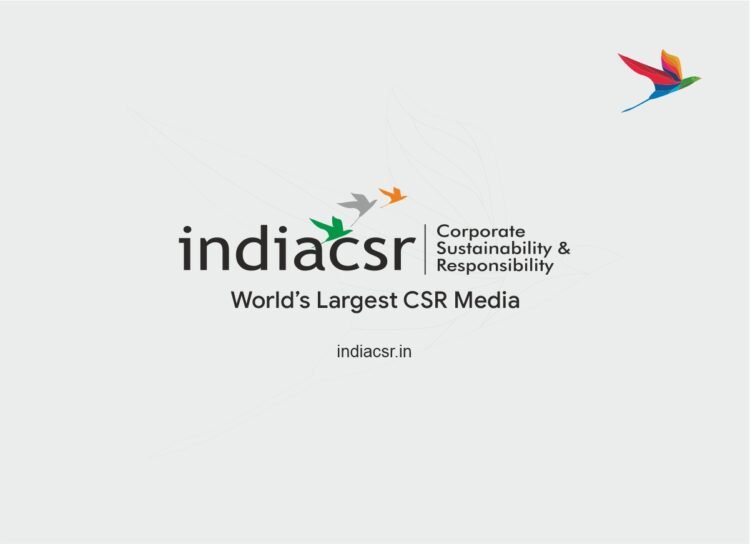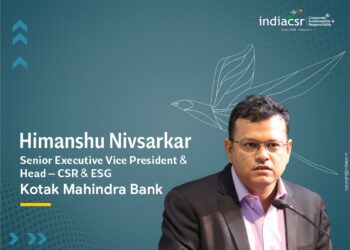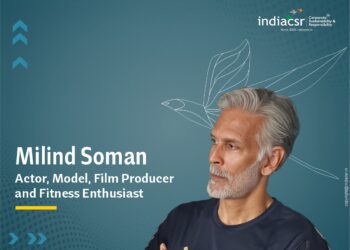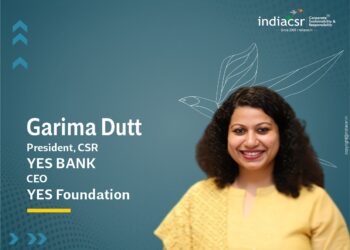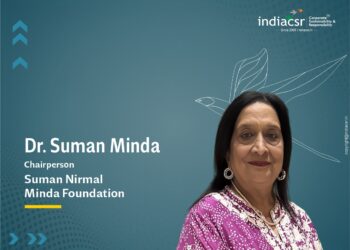Interview with Rohini Nilekani, Chairperson and Founder, Arghyam
Rohini Nilekani, Chairperson & Founder, Arghyam, has been deeply involved in development issues for many years now. An ex-journalist, a writer and a philanthropist, she has co-founded Pratham Books, a non-profit publishing enterprise to produce high quality, low cost books for children in several Indian languages. “Chat over Chai”, is an interactive format by TiE Stree Shakti that combines inspiration and mentoring through an interactive meeting of Women Entrepreneurs with an iconic thought leader / successful entrepreneur around key social and business issues.
TiE Stree Shakti (TSS) is a movement that aims to connect and enable enterprising women from different socio-economic strata through a series of on-ground focus activities that are driven by TiE’s core philosophy of mentoring, education, inspiration and networking. TiE Stree Shakti, conceived and launched by TiE Mumbai in 2009, is committed to celebrate and enable these ‘Inspiring Women Entrepreneurs in India’.
As part of the run-up to the TiE Stree Shakti Conference and Awards, the first of the ‘Chat over Chai’ series was organised with Rohini Nilekani and moderated by Rama Bijapurkar, one of India’s most respected thought leaders on market strategy and consumer-related issues in India.
Siddhi Bajaj of IIFL provides the key highlights of Chat over Chai where Rohini Nilekani says, “When we are doing things, we have much less time for pessimism.”
Tell us about ‘Uncommon Ground’.
Having been a journalist earlier I always liked to ask questions. A lot of my work in the last 10-12 years has been in the not-for- profit sector. But because of Nandan (Nilekani), I got to meet a lot of people from India’s corporate sector and even international corporates to some extent. I discovered this sort of polarization and thought India looks so different when you look at it from these two sides. I felt that there would be a middle ground in between that could be explored. It is from there that ‘Uncommon Ground’ was born. So we took 8 important national issues such as energy, environment, food among others, and had the top leaders from both sides come and discuss them calmly, one on one, and see if there is more common ground than they originally believed. There were people like Sunil Mittal, Mukesh Ambani, Medha Patkar and so on, who came and spoke on the sectors they were engaged in.
Was there some common ground found?
I think some patterns indeed emerged. More importantly, they recognized the need for such a platform for dialogue and perhaps there isn’t enough quiet introspection about each other’s positions. Beyond any sort of position taking, I think they felt there is space where work can be done.
Tell us about the Akshara Foundation.
Well, the Pratham Network was started in 1994 in Mumbai and was very successful. Different state governments began to notice it and the Karnataka government decided to take it forward as a public-private partnership for education. So, I was approached and I became a part of the Akshara Foundation in 2000. We did a lot of things based on the Pratham model and by 2009, we reached several lakh kids in Karnataka with remedial education programs with pre-schools and educational packages in English, Maths, Science, Kannada. A lot was done together with the government. By 2009 there was a new leadership in place and I believe organisations do need a lot of fresh blood. I then decided that a decade was a reasonable time to say goodbye and leave a sustainable institution behind. It was a planned exit.
Tell us what does Arghyam do.
Araghyam was set up earlier for me to ramp up my philanthropy but in 2005, I had some decent money and wanted to put it all into a social cause. I was finding something where a small Indian company could do something strategic. And once, like a moment of epiphany, I was holding water and it just struck me that it’s water! When we did some research we could see that there was a clear gap and room for a foundation to do something meaningful.
For the last six years, we have had the opportunity to understand the complexities surrounding this precious and finite resource. Also, people are now realizing that the more energy, the more land we have, it is water that is going to be a constraint to our development; unless we learn to do things differently. In the last six years, we have supported several projects and NGOs in 19 states and have tried to focus on domestic water and sanitation. We also focus on a range of activities like reviving traditional water bodies, rainwater harvesting, a deep emphasis on sanitation etc, all of which also spill onto areas beyond domestic water.
How do you describe yourself? A philanthropist or a social entrepreneur?
For a long time, I have resisted that label of a philanthropist. It sounded very funny to me. But now I have just resigned to it. But I do think of myself as an activist and as a writer. I like working with words.
Like in the movie ‘Sliding Doors’ the actor’s life is shown, if she had and had not stepped into the doors of that train and how her life would change after. What would you say are your sliding doors?
I think if I hadn’t met Nandan, things would have been very different. Also, post our marriage, if Infosys wouldn’t have happened I would have probably been a journalist or a Medha Patkar. I used to stand outside doors of homes where we had heard of dowry cases and shout slogans there. So I would have probably been out on the streets shouting about something. And one more sliding door for me would have been now when we had the choice to stay back in the US or come back to India. So, I made it pretty clear that I wanted to come back.
Between that gleam in the eye where you realized it is water and the institution you have set up, tell us what is the process you followed?
I think the first thing that is required is the gleam in the eye, may it be mine or someone who I work with. One needs to have the vision that they want to make a particular kind of change. You need to feel strongly about it. Like in the case of ‘Balwadis’; there was a lot of muddling. You need to find the right person to manage the kids. It is not easy as the kids are sick or malnourished. As time progresses, the idea caught on and now there is demand for many more. Next, like any other organisation, you have to sit back and have a plan. When we started with a small initiative called Nagarik in 1993, for safer roads considering all the traffic deaths, we were absolutely clueless. But as we set up more institutions, we could see a broader strategy easily.
What is the unfinished business for you?
There is definitely more philanthropy on the way. But the biggest challenge I feel is change from within. The self awareness, that personal journey, that is the real business of life. The continuous state of self-transformation is a challenge.
Are you optimistic about where we are as a country today?
Yes of course. The situation is way beyond pessimism; we do not have a choice. We have to be optimistic and we have to wake up every morning and just go and do things. When we are doing things we have much less time for pessimism.
You may also like:
- We Have Conviction in the Potential of CSR: Sharon Weir, Founder of the 4th Wheel
- Our Aim is to Create Awareness Towards Global Warming in India: Prashant Kothari, Chairman, GWACT
- I Have a Dream to Train One Lakh Youngsters Every Year in Vocational Training: Naveen Jindal
- ‘Sustainability’s A Difficult Subject, Beyond Just CSR’
- No breach of trust on CSR norms: Veerappa Moily

